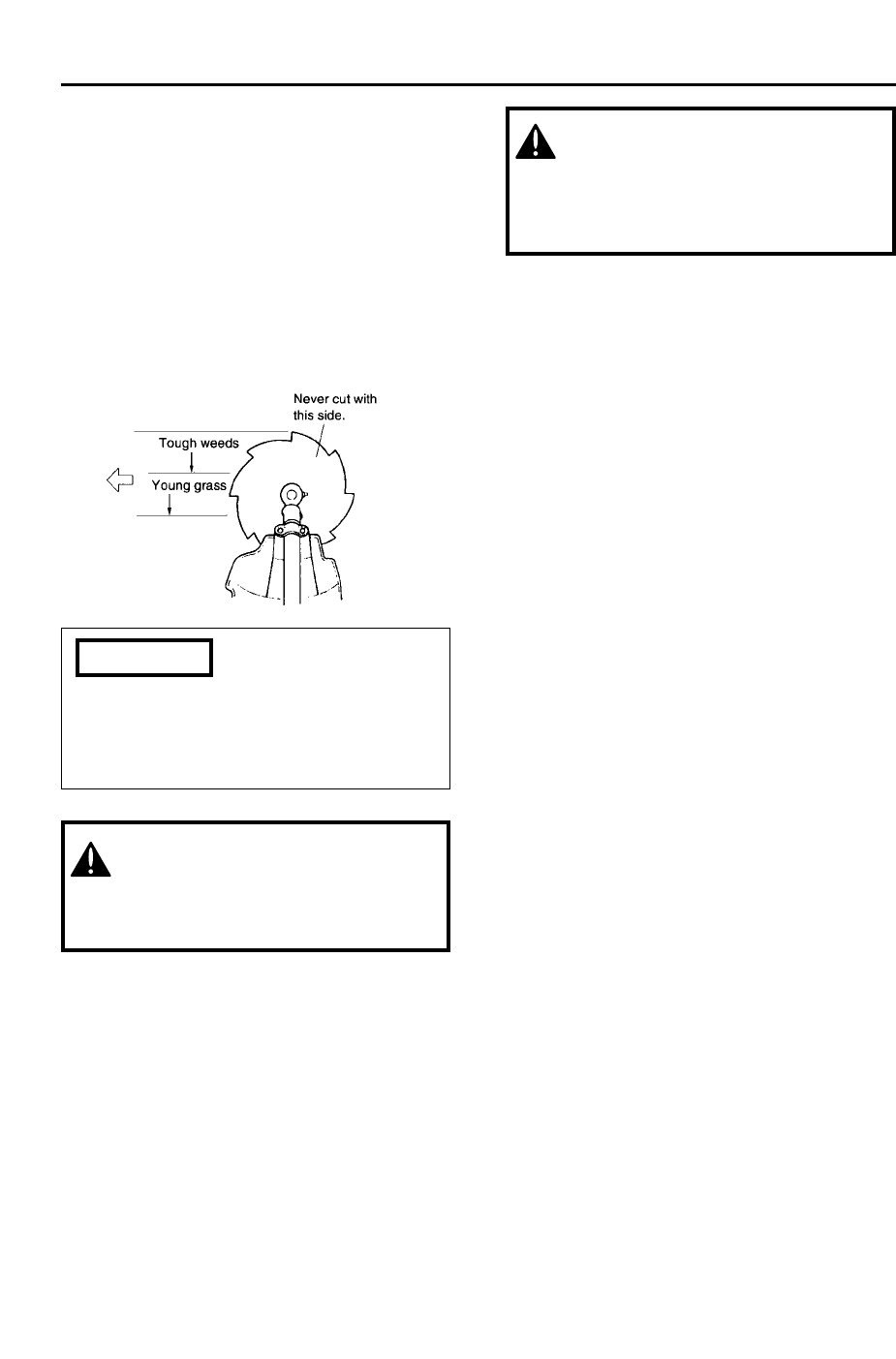
■ METAL BLADE USAGE
• Always cut by guiding the head from your
right to left.
• When moving a wide area, start working
from the left side to avoid interference of
cut grass.
• A metal blade cut best up to the point 1/3
from the edge. Use that area for cutting
shrubs, tough and thick weeds. For cutting
young grass, you can use up to 2/3 from
the tip of blade.
Do not use the Metal Cutting Blade for
cutting trees or thick branches. The blade
is designed to cut grass, weeds or shrubs
only.
Working on a slope increases the
danger of losing your balance. Do
not use your unit on a slope until
you have mastered its operation.
FOR SAFE OPERATION ON A SLOPE:
1. Always use anti-slip shoes.
2. Do not work in and/or right after the rain
when the ground is wet and slippery.
3. Do not use your unit on a slope where firm
footholds are not secured.
4. Do not cut material above you waist or
below your ankle.
5. Be sure to stop the engine before moving
to the next row.
NOTE
Operation
The operator must keep his own
path of advance clear due to the
possibility of swinging around and
seriously injuring a bystander or
helper.
CONTROLLING BLADE BOUNCE
• Blade bounce can cause serious personal
injury. Carefully study this section. It is
important that you understand what causes
bounce, how you can reduce the chance of
bounce and how you can remain in control
of the unit if bounce does occur.
1. What causes blade bounce:
• Bounce can occur when the moving blade
contacts an object that it cannot cut. This
contact causes the blade to stop for an
instant and then suddenly move or
”bounce” away from the object that was hit.
The operator can lose control of the unit
and the blade can cause serious personal
injury to the operator or any person nearby
if the blade contacts any part of the body.
2. How you can reduce the chance of
blade bounce:
a. Recognize that bounce can happen. By
understanding and knowing about
bounce, you can help eliminate the
element of surprise.
b. Cut fibrous weeds and grass only. Do
not let the blade contact materials it
cannot cut such as hard, woody vines
and brush or rocks, fences, metal, etc
c. Be extra prepared for bounce if you
must cut where you cannot see the
blade making contact such as in areas
of dense growth.
d. Keep the blade sharp. A dull blade
increase the chance of bounce.
e. Cut only at full throttle.
f. Avoid feeding the blade too rapidly. The
blade can bounce away from material
being cut if the blade is fed faster than
its cutting capability.
❲
13
❳


















